FEBRUARY 2025

EXCITING NEW FEATURES!
GUEST WRITER, PLAYER
MAGAZINE EXTRACT & LETTERS
TO THE OFFICE – SEE WHAT’S FRESH INSIDE!
GAME-CHANGER ALERT!
DISCOVER THE NEW FAIR
PLAY RULE TACKLING
SQUASHLEVELS CONCERNS

FEBRUARY 2025

EXCITING NEW FEATURES!
GUEST WRITER, PLAYER
MAGAZINE EXTRACT & LETTERS
TO THE OFFICE – SEE WHAT’S FRESH INSIDE!
GAME-CHANGER ALERT!
DISCOVER THE NEW FAIR
PLAY RULE TACKLING
SQUASHLEVELS CONCERNS

Independent research by leading consumer magazine Reader’s Digest found G.J. Gardner Homes to be New Zealand’s Most Trusted Home Builder once again.
Talk to us today and see why more New Zealanders trust G.J. Gardner to build their homes year after year.
0800 42 45 46 / gjgardner.co.nz

14. Masters Profile Kathryn McKay
16. Player Magazine Extract
18. Guest Writer - Rodney Bannister
20. Club of the month - Eden Epson
21. Club Showcase - Browns Bay Team Challenge
24. Referee - Why become a referee?
26. Coaching Tip - Solo practise
28. Coach Profile - Grace Hymers
31. Tournament Controller Pathway
34. MySquash Competitions is now live
35. Squash Levels - Fair Play Rule
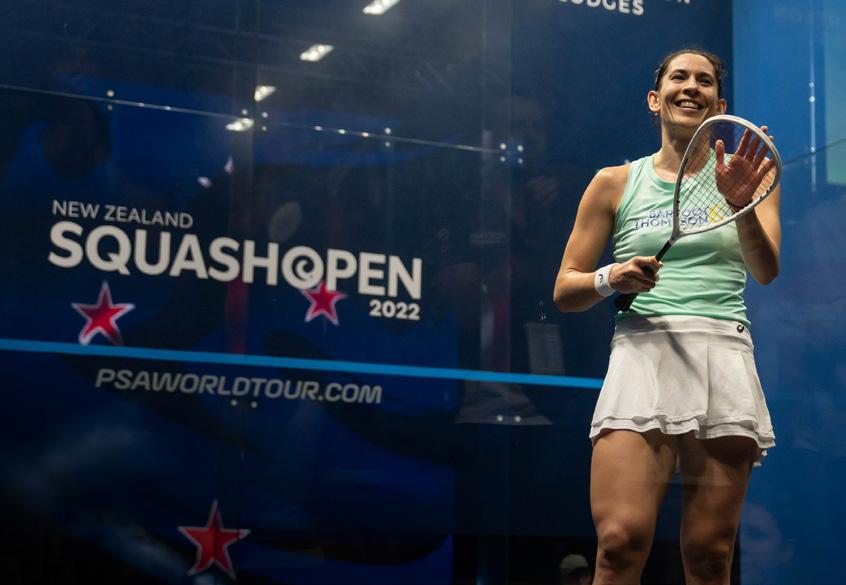






Tēnā koutou

Happy New Year, everyone!
Welcome to a slightly refreshed Boast! Our goal is to make our content more engaging and relevant to you. Following last year’s survey, we’re introducing new segments into this year’s format to better align with your interests.
We’re also thrilled to announce the full release of MySquash! After a tremendous effort from many dedicated people, we now have an integrated national membership system, a replacement for iSquash, a new grading system, and a flexible subscription model that allows everyone to access MySquash’s features.
As with any major launch, there may be a few teething issues, and we
appreciate your patience as we work through them. Rest assured, we are committed to continuously improving MySquash, with exciting new features rolling out over the coming months particularly in the MySquash Competition segment.
This has been a massive project, and I want to extend my sincere thanks to everyone who helped bring it to life— especially the person at your club who took on the not so small task of syncing all your data into MySquash!
We look forward to an exciting year ahead and hope you enjoy the new Boast!
Ngā mihi Martin Dowson
Event
New Zealand Masters Games
New Zealand Junior Open
New Zealand Open
Waikato Open
Auckland Masters
New Zealand Doubles Championship
Oceania Junior Championships
6th - 9th February
7th – 9th March
4th - 9th March
14th - 16th March
20th - 22nd March
28th-29th March
19-21st April
Whanganui Squash Club
Christchurch Squash Club
Isaac Theatre Royal / Christchurch
Kumeu Squash Club
Hamilton Squash & Tennis Club
Hutt City Squash Club
Hamilton Squash & Tennis Club
Don’t miss any upcoming events. Click HERE to access the full tournament calendar

Squash New Zealand Poipātū Aotearoa is seeking two passionate and dedicated board members to join our team. Applications close at 5 PM on Thursday, 13 February 2025. Application requires support from your relevant district, a signed nomination form needs to accompany your application.
For details and to apply, email admin@squashnz.co.nz
OPPORTUNITYSport Manager for Squash – LA28
Organising Committee

The LA28 Organising Committee is looking for a Sport Manager for Squash for the upcoming Olympic Games held in 2028. This role is crucial to the success of our sport at LA28, and the LA28 Organising Committee is looking to cast a wide net to identify the best possible talent.
The job posting can be found HERE and any candidates can apply directly through the formal application process. All candidates must complete the application to be considered.
According to LA28, the recruitment process will take place in waves over the next 12 months.
gm@squashauckland.org.nz
World Squash Federation are delighted to announce the launch of their new logo/brand, reflecting the sport’s vibrant, modern, and inclusive identity. This rebrand is an essential step in aligning the global image with squash’s dynamic nature and its ongoing journey to reach new audiences worldwide. The updated logo, colours, and brand elements are designed to position squash as an innovative and forwardthinking sport, while celebrating the diversity and energy of our global squash community.
Congratulations to Andrew Palmer from Hamilton Squash and Tennis Club / Waikato.
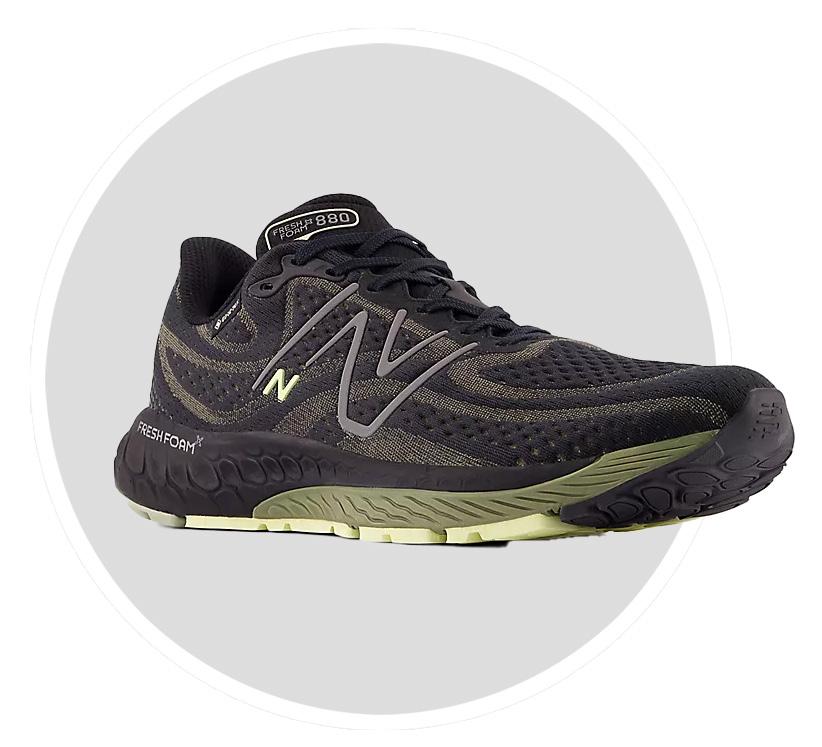
Andrew is the lucky winner of a pair of New Balance shoes as a result of filling in the feedback form/survey regarding the Boast.
A big thank you to everyone who took the time to fill out the feeback form about the Boast. We hope you like this new refreshed Boast which is brimming with content.


Ilan here from BBRC. I have been playing around the new MySquash and it looks great.
One extremely important point of concern is the directory, I am not an expert or privacy laws as this could breach those laws (I know in other countries it would). I doubt many of the 9819 members would agree to have their phone numbers and emails available to any logged in member. I can understand having a possibility to contact others via a secure email via the platform but publishing full contact details is of great concern. This could be a major security and a concern for many members and I would strongly recommend removing this function, or at least opt-in for those who agree.
I tried figuring out on manage my profile how to remove it but couldn’t do that, as I would like to hide my phone number.
Cheers,
Ilan Thanks Ilan,
First off, MySquash asks everyone when they create their MySquash profile if they want their details listed in the directory, so everyone in there has consented.
Secondly, you can change it by logging into MySquash, going to Profile, then Member details and the Directory tab. You can then choose if you want to be in the directory, and if so, what contact details you want to share.

As a full time Coaching Pro, my job is to provide firstly the Bay of Plenty, then secondly NZ, confident skilled young athletes that could possibly build on the history our country has in the game. There’s undoubtedly a huge difference between a competent young A grader and a good young touring Pro. Over recent years we have struggled at National level to commit to supporting these young ones with a programme that is going to make a difference.
What has SNZ put in place for 2025 and beyond to address this and what accountability measures have been put in place for assessing the benefits provided?
Cheers
GR
We welcome letters
to the national office. Please send your letter to admin@squashnz.co.nz
We will publish a selection each month, all questions will receive a response if not published.
Thanks GR,
To address the gap in player development, Squash New Zealand (SNZ) has introduced key initiatives for 2025 and beyond. One major change is the introduction of player progression lines, offering an objective framework to track player development against international standards and determine who is ready for national squads.
The development calendar has been redesigned to build mental and physical toughness, with camps like the recent 4-day National Development Camp focused on testing players’ ability to perform under fatigue. Selection for events like the Trans-Tasman Test series will now be based on results from these high-intensity training camps.
We’ve also implemented robust strength and conditioning programmes, minimum fitness standards, and a mental readiness assessment, which will contribute 20% to selection. National and regional camps, aligned with initiatives like the Coaches Collaboration Camp, ensure a shared vision among coaches. Additionally, we’re involving parents and educating them on creating a supportive highperformance environment.
These initiatives aim to push players toward the highperformance line and improve results at Junior World Championships.
We’re introducing a Community Board in our monthly magazine!
Share your squash related news, events, coaching, pro shop offers, or services—free of charge.
Email admin@squashnz.co.nz with the subject “Community Board Advert.” Keep your advert to approx. a maximum of 40 words.

ONLINE AUCTION IS NOW LIVE, AND WE NEED YOUR SUPPORT!
This is your chance to grab an incredible range of items while helping us raise funds to make this year’s New Zealand Festival of Squash from the 4th to 9th March bigger and better than ever.
The Festival of Squash includes the NZ Squash Open (Men & Women) featuring 48 of the world’s leading players including NZ’s own Paul Coll and Joelle King, and the NZ Junior Squash Open (Men & Women).
There’s something for every budget—from Paul Coll’s signed shirts from his 2023 US Open victory to luxury accommodation in Bali and much more. Items will continue to be added throughout the auction so check-in regularly.
Click here to browse the auction and place your bids
Auction closes: 23rd February at 8pm
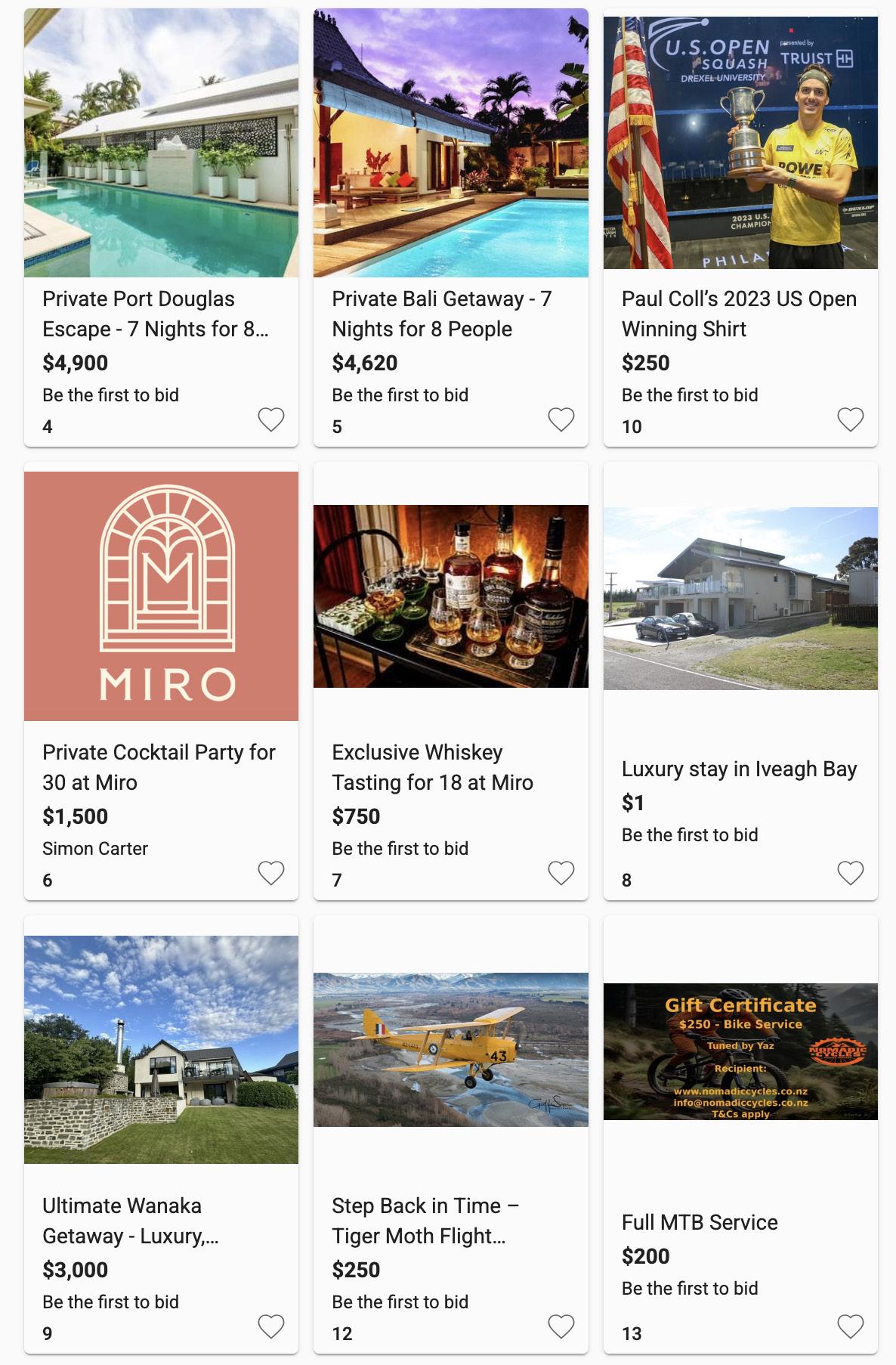

A phenomenal field featuring a host of the world’s best squash athletes has been confirmed for the 2025 New Zealand Squash Open in Christchurch.
The Barfoot & Thompson Women’s Open draw boasts 9 of the world’s top 20 athletes, with Kiwi squash legend Joelle King and up and coming New Zealander Ella Lash joining the event as wildcards. World No.9 Nele Gilis-Coll, the wife of Paul Coll, has also been named in the women’s draw and will be looking to defend the title she won when the tournament was last held, in 2023.
“I’m really looking forward to playing at home again,” said King.
“I love the New Zealand Squash Open, it’s such a competitive event and the field is absolutely stacked. There’s going to be some amazing squash on display so it’ll make for a great event.”
The Lucino Vanities Men’s Open field is headlined by hometown hero Paul Coll and features five of the world’s top 20. He’s joined by World No.5 Mazen Hesham
and runner up from the previous NZ Open, Marwan Elshorbagy. Exciting young New Zealanders Anthony Lepper and Ollie Dunbar have also secured places as wildcards and will be looking to cause an upset in front of friends and family.
The overall draw features 24 men and 24 women from 17 nations and six continents making it a truly global event. The competition will be held at Christchurch’s iconic Isaac Theatre Royal, which will be decked out with a glass court on stage from March 4th to 9th 2025. Squash New Zealand Poipātū Aotearoa Chief Executive Martin Dowson says it’s one of the strongest ever fields for a New Zealand Squash Open.
“We’re thrilled to have so many high caliber athletes coming to our backyard to show off their skills,” said Dowson.
“Squash has been added to the 2028 Olympic programme and I have no doubt that many of these athletes will go on to compete at LA 2028, so this is a pretty unique opportunity to see these future Olympians in action.
“Tickets start at $20 and are getting snapped up with only around a third left and even less for the finals sessions. We’re encouraging not just squash fans but anyone who likes events to grab theirs and enjoy the action.”
sport. Amongst the excitement of the tournament, athletes and supporters will be able to find some balance and enjoy the unique experience Ōtautahi offers to all who visit.”
I’m really looking forward to playing at home again
- Joelle King
ChristchurchNZ Head of Major Events Karena Finnie said, “We are thrilled to welcome The New Zealand Squash Open to our vibrant, friendly city for the first time.
“Ōtautahi has a diverse sporting events portfolio and we are delighted this now includes squash, especially for our local squash community and fans of the growing
[1] Tinne Gilis (BEL)
[2] Amina Orfi (EGY)
[3] Rowan Elaraby (EGY)
[4] Nele Gilis-Coll (BEL)
[5] Sivasangari Subramaniam (MAS)
[6] Satomi Watanabe (JPN)
[7] Fayrouz Aboelkheir (EGY)
[8] Salma Hany (EGY)
Nour Heikal (EGY)
Tsz-Wing Tong (HKG)
Rachel Arnold (MAS)
Jessica Van der Walt (AUS)
Tomato Ho (HKG)
Georgia Adderley (SCO)
Cindy Merlo (SUI)
Marta Dominguez (ESP)
Marina Stefanoni (USA)
Aira Azman (MAS)
Ainaa Amani (MAS)
Ka Yi Lee (HKG)
Hana Moataz (EGY)
Enora Villard (FRA)
[WC] Joelle King (NZL)
[WC] Ella Lash (NZL)
The tournament will be run as part of The New Zealand Festival of Squash, which will see the New Zealand Junior Open held at the Christchurch Club in conjunction with the elite event, as the next generation of squash stars are inspired by their sporting idols.
Tickets for the 2023 NZ Squash Open are on sale through the event website www.festivalofsquash.co.nz
Further information about the NZ Squash Open, including schedule and streaming information, will be announced prior to the event.
[1] Paul Coll (NZL)
[2] Mazen Hesham (EGY)
[3] Marwan Elshorbagy (ENG)
[4] Eain Yow Ng (MAS)
[5] Greg Lobban (SCO)
[6] Sebastien Bonmalais (FRA)
[7] Baptiste Masotti (FRA)
Ryunosuke Tsukue (JPN)
[8] Iker Pajares (ESP)
Velavan Senthilkumar (IND)
Henry Leung (HKG)
Cesar Salazar (MEX)
Rui Soares (POR)
Yahya Elnawasany (EGY)
Auguste Dussourd (FRA)
Addeen Idrakie (MAS)
Abdulla Al-Tamimi (QAT)
Alex Lau (HKG)
Sanjay Jeeva (MAS)
Tom Walsh (ENG)
Abhay Singh (IND)
Bernat Jaume (ESP)
[WC] Oliver Dunbar (NZL)
[WC] Anthony Lepper (NZL)
New Zealand’s Paul Coll has been unable to hold off World No.1 Ali Farag at the 2025 Tournament of Champions in New York.
The Egyptian has a strong pedigree at the tournament, having won the event in 2019, 2022, and 2024. As he looks to defend his title he delivered a performance worthy of his World No.1 ranking, wrapping up an 11-8, 11-7, 11-7 semi-final win against Coll in just 46 minutes on the all-glass court in the Grand Central Terminal.
Coll was unable to hold off a clinical Farag who dominated the ’T’ in the opening game, stepping up the court and controlling the pace of rallies. Despite World No.4 Coll staying level heading into the mid-phases of the first, it was Farag who moved away to take the first game after 16 minutes of play.
Farag proved too smart and astute in the latter stages of the second, moving away from 7-7 to with four straight points to double his advantage – taking it in fortuitous circumstances with a rare ace.
Three-time champion Farag continued to play near perfect squash as the match entered the third, with Coll doing all within his power to stay in touching distance.


However, Farag once again played his best squash when the pressure mounted, taking the match when Coll clipped the tin with a backhand unforced error.
Coll will be in action in Christchurch in early March at the 2025 New Zealand Squash Open.
Result:
[1] Ali Farag (EGY) bt [4] Paul Coll (NZL) 3-0: 11-8, 11-7, 11-7 (46m)
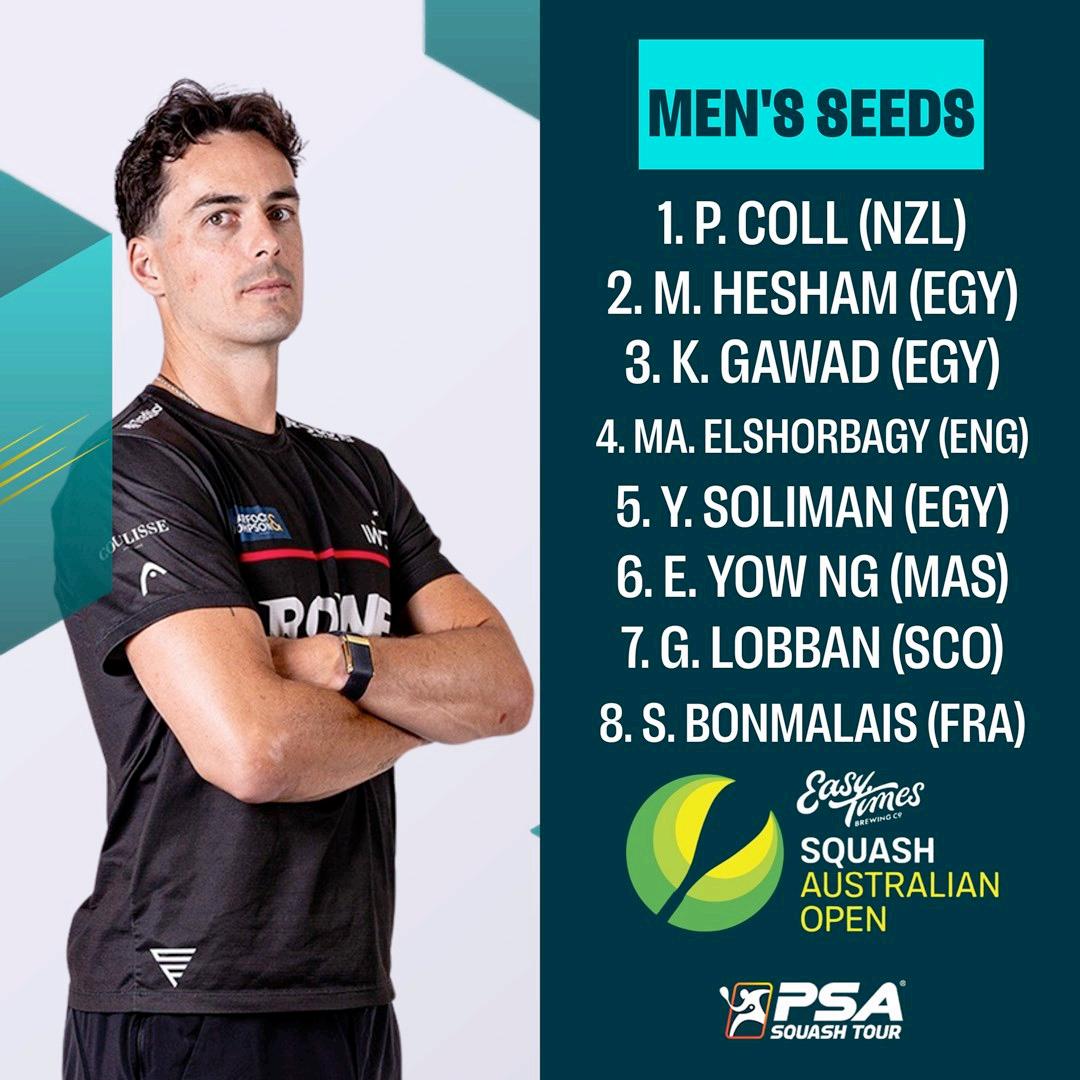
11th - 16th March, 2025.
Shorly after the NZ Open in Christchurch 4-9th March, Paul Coll will head over to Australia to play in the Australian Open where he is top seed on the men’s side.
Oli Dunbar is quickly making a name for himself in the squash world, with standout performances that have solidified him as one of the top junior players globally.
Over December and January, the 17-year-old Kiwi took part in two major tournaments—the Scottish Junior Open and the British Junior Open—and his results were nothing short of impressive.
At the Scottish Junior Open, Dunbar was in a class of his own, winning the title without dropping a single game. It was a dominant display that set the tone for his performance at the British Junior Open, one of the most prestigious junior events on the calendar. Entering the competition seeded 17/32, Dunbar exceeded expectations by defeating a series of higher-ranked opponents. He beat the number 7 seed, Rohan Arya Gondi from the USA, the number 9 seed, Alexander Broadbridge from England, and the number 4 seed, Low Wa Sern from Malaysia, who had finished 7th at the World Junior Championships just months before. Dunbar eventually finished 6th in the tournament, marking the best finish for a New Zealand male in over 30 years—since Campbell Grayson finished 9th in

2004. His only losses came to the top two seeds—Harith Daniel Jefri and Youseff Salem—both in tight five-set matches. Against Salem, Dunbar even had match balls before narrowly losing 12/10 in the final set.
This impressive run shows just how much Dunbar has progressed. A few months ago, he finished 37th at the World Juniors, but now he’s among the best juniors in the world.
What’s your why? Why do you play squash?
The social and competitive aspect.
What has been the most memorable moment in your squash career so far?
Winning NZ Nationals 3 times in a row.
Who has had the biggest influence on your career, and how?
Mohamed Zakaria because of his mental toughness, being so strong at only 17.
What do you think is the most important quality for success in squash?
Dedication.
When you’re not on the court, what do you enjoy doing in your free time?
Hanging out with my friends and playing golf.

What’s one thing you’ve learned through playing squash that you apply to other areas of your life?
Time management.
What’s your ultimate goal in squash, and how do you plan to achieve it?
Go to university overseas for squash. I plan on doing this by working on all the flaws in my game until there are few left.
During January 23-26, the first-ever four-day National Development Training Camp took place, with a strong focus on mental toughness. The camp pushed players out of their comfort zones and challenged them to build confidence by proving to themselves that they can tackle tough situations and push through physical and mental boundaries.
The camp included a mix of activities designed to stretch players both physically and mentally. From fitness testing and a nutrition workshop to on-court training, ice baths, and sand dune sprints, the schedule was packed with challenges that forced the athletes to rise to the occasion. The experience was about more than just physical exertion—it was about growth. Players were taught that true development happens when you step outside of what feels comfortable, and that’s where the real progress occurs.
The camp kicked off with a session on culture, emphasising the importance of being part of the highperformance program and understanding that the players are part of something bigger than themselves as individuals. Elijah Thomas later shared his experiences from the development phase of the pathway, talking about mental toughness and how self-belief can be nurtured. He also shared his reading list on growth mindset, giving the players valuable resources to develop resilience and confidence.


On the final day, after three days of rigorous training, the players faced off in selection matches. These matches were counted on SquashLevels and will be used for selection for the upcoming Trans-Tasman Test Series. The selection policy was intentionally designed to expose the players to multiple days of physical and mental stress, followed by competitive matches. This approach allowed coaches to observe who could push through exhaustion and rise to the challenge when the pressure was on.
The camp was a huge success, with players showing incredible fight and determination. There was a noticeable shift in attitude; the players fully embraced the challenges and showed they’re ready to put in the hard work necessary for success. It’s exciting to see this shift, and we’re confident the wider squash community will soon see the results when these young athletes take to the court.
In the first week in February, we’re thrilled to host a group of players from Hong Kong. They’ll be visiting Auckland, Hamilton, and Tauranga, playing against local juniors and receiving coaching from our performance coaches. It’s a busy but exciting time for the development program, and we can’t wait to see what’s next for these talented young athletes.




KATHRYN MCKAY
Name/Home Club
Whakatane Squash Club
What’s your “why”? Why do you play squash?
I’m naturally competitive and dabbled in squash as a youngster but started playing competitively when at uni as my sisters were playing. I loved it and set goals to move up and out of E1... I’ve now played for some 40+ years I have many strong friendships amongst the squash family. Injury took me off the court in 2024 but I am keen to play again this year, I still love the game and I enjoy catching up with my fun squash friends.
What has been the most memorable moment in your squash career so far?
The absolute surprise I got in being awarded the Rob Roche award in front of my peers and the Aussie team. I was listening to the announcer read out about the recipient and then it dawned on me that it sounded pretty much my story....
How do you stay motivated during tough training and competitions?
I enjoy training and being fit and add into that a goal of a tournament or masters selection and that spurs me on.
Who has had the biggest influence on your career, and how?
Whakatane’s Sue Robertson coached me as a C grader and our club team won the C grade nationals. She took
me through to A grade and then over the years I’ve had numerous sessions with Robbie Wyatt and Danny McQueen.

What do you think is the most important quality for success in squash?
Fitness and determination
When you’re not on court, what do you enjoy doing in your free time?
Other fun activities such as mountain biking, swimming, pump and spin classes.
What’s one thing you’ve learned through playing squash that you apply to other areas of your life?
To improve you need to be prepared to work hard, train and get lessons to improve your skill set.
If you could change one thing about the sport of squash, what would it be?
That it becomes an Olympic sport and not just an exhibition one.
What’s your ultimate goal in squash, and how do you plan to achieve it?
To be able to play competitively again and at a level good enough to be competitive at Masters Nationals and to achieve a masters title.
IMPORTANT UPDATE ON TRANS TASMAN SELECTION PROCESS
As we approach the 2025 Trans Tasman Test Series in Perth, it’s time to begin preparing for selection to the New Zealand Masters Team. If you have already made yourself available for selection, it’s important to ensure that your tournament schedule aligns with the upcoming key selection events.
To be in the best position for selection, we recommend that you plan to compete in two critical tournaments, both of which will play a significant role in the selection process:
North Shore Open/Masters
April 11-13, North Shore Squash Club, Auckland
Canterbury Masters
May 16-18, Christchurch Football Club
While participation in these tournaments is not mandatory, results from these events will be weighted at 25% of the selection criteria. It is important to note that although the tournaments are not compulsory, they
are highly valued in the selection process. There will be no penalty for competing in only one of these events, but your performance in these competitions will significantly influence your chances of making the team.
These tournaments provide an excellent opportunity to demonstrate your readiness for the Test Series and ensure that you are well-prepared. The results will be an important factor in the overall selection decision, and as such, we encourage you to approach these events with the focus and commitment necessary to perform at your best.
We recommend that you prioritise these tournaments in your training and competition schedules to give yourself the best possible opportunity for selection. The Trans Tasman Test Series in Perth will be a prestigious and highly competitive event, and we look forward to seeing you put your best foot forward in the coming months.
Best of luck in your preparation and we look forward to a strong contingent representing New Zealand this September.

The world’s best squash players are coming to Ōtautahi Christchurch for the 2025 New Zealand Squash Open from 4th to 9th March at the iconic Isaac Theatre Royal!
Experience the thrill of top-tier squash in this stunning venue offering spectacular views for all fans. With ticket prices starting at just $20, depending on the day and category, this is an event you won’t want to miss!
Whether you’re a local or travelling to Christchurch, come witness history in the making and be part of this incredible sporting event. Let’s fill the theatre with passionate fans and show the world what Ōtautahi is all about!
TICKETS VIA TICKETEK - CLICK HERE TO BUY YOUR TICKETS
"I’m focused on becoming a better player that happens, the titles will come”
The 2024/25 season hasn't quite gone to plan so far for New Zealand's Paul Coll. The former British Open champion has struggled to reach the heights set last season and has been beaten before his seeding in five of the seven events played during this campaign.
The Kiwi had claimed two Platinum titles by this time last season as well as a Silver event title in his home country, an event which is taking place in March this season. Coll is well aware of his disappointing start to the season but has admitted that he doesn't think he has played too badly and wants to stick to his methodical approach to becoming a better squash player.
“It’s not been the start that I dreamt of obviously. But I think I’ve actually learnt a lot from the first half of the season," said Coll recently.
"I’m just trying to grow as a player. I don’t think I’ve played great but not too badly either but just searching for those wins can sometimes put more pressure on. I’ve done some work mentally, and physically I feel great so it’s just about staying in the moment and trying to get those wins.”



Coll has lost out to players only slightly below him in the world rankings such as Mazen Hesham, Joel Makin and Marwan Elshorbagy and explains how tough the top of the men's game is at the moment, with so many quality players waiting for you sometimes as early as the first round.
“It’s very strong at the moment, you can get the likes of Marwan [Elshorbagy], Victor [Crouin], [Fares] Dessouky in the first round which is obviously tough so it does make it harder to win tournaments but if you want to win these events then you have to beat everyone.”
Coll is renowned for being one of the most physically fit players on the PSA Squash Tour but has recently been placing more focus on the mental part of his game to handle certain situations better and also work on his overall squash game as that is where he sees a big area to improve, despite not leaving the world's top five for six years.
“I didn’t make any major changes, I’m always working technically to try and get a little bit better there. I’m doing a lot of mental work, trying to get better in certain moments and also just still learning the game itself. I feel like there’s so much room to improve there and that’s the mindset that I’m in. I’m more focused on becoming a better player and if that happens, then the titles will come."
This article is a special one for The Boast, which the editor of Player Magazine has created based on an interview he did with Paul pre-TOC. The next Player Magazine is coming end of February, all MySquash Members will get free access.

A winning mindset is a superpower for success in the game of squash. Practicing mental habits and adopting a self-belief attitude that enable you to persevere and overcome self-doubt to consistently perform at your best are skills you can tangibly practice.
A winning mindset leaves you with no doubt you can win. Deep down inside, you believe, meaning you truly believe without an inkling of self-doubt. Truly believing is an absolute must if you are to adopt a winner’s mindset.
1. Embrace a growth mindset:
At the core of a winning mindset is the belief that your abilities can be developed through consistent and diligent work ethic. Challenges are not obstacles but the opportunity to learn and grow. Accept that a loss is part of a natural process used a s stepping stone in your journey to improve, it does not define you. If you lose a match or a tournament, analyse what your work ons need to be and take steps to be better next time. Setbacks become valuable lessons rather than reasons to give up and feel sorry for yourself. We learn more about ourselves from losses than winning.
2. Set clear goals:
Winners know where they are going and why. Setting clear and measurable goals gives you a sense of direction and purpose. Break long term aspirations into smaller achievable steps. This keeps you motivated and makes the big goals manageable. Get your goals written down and look at them regularly. See and feel yourself achieving those goals. Mental imagery builds internal confidence.
3. Motivation comes and goes, develop self-discipline:
Discipline is your gold nugget allowing you to stay consistent. Discipline is a nonnegotiable contract we have with ourselves to get it done no matter what we ‘feel’ like. Discipline aligns us with our goals, not how you feel in a moment. When the motivation fades (it will) your winning mindset kicks in. Create habits and routines that support your goals. If you need to get fitter, get fitter. If you need to change some technical stuff, go and get some coaching.
4. Build resilience:
Don’t be a snowflake. Ditch the excuses, anything worth achieving cannot be achieved unless you are fully committed and honest with yourself. Adversity is essential for a winning mindset.
I’m more interested in watching a kid’s behaviour after they lose than when they win, this tells you a lot about their mindset. Remember, not everyone in this life gets a certificate. Resilience sees you staying mentally strong when facing setbacks, maintaining a can do attitude and continuing to move forward.
Reframe negative experiences, instead of dwelling on losses focus on what you did well, what you learned and how it will make you stronger.

5. See the good stuff and stay confident in yourself:
Having a positive outlook no matter what comes at you is a powerful asset. Truly believing in your abilities and maintaining an optimistic outlook when the odds are against you makes a world of difference. Confidence does not equal ignorance/arrogance, it means trusting you are well prepared and confident of succeeding.
Practice positive self-talk affirmations, check that your internal self-talk is nurturing your mindset. Instead of ‘I can’t’ use ‘I’ve got this, I’m well prepared and ready for anything that comes at me.’
6. Focus on the process:
Real winners understand that their success is a result of consistent efforts over a period of time. The best 16-year-old is rarely the best 20-year-old, during developmental years there are so many variables and reasons why some kids beat others, very rarely is it because they are a better or more skilled player. Instead of obsessing over getting a winning result focus on the daily habit’s that will get you there in good timetrust your process the results will follow.
Tips:
A winning mindset is something you learn and grow through intentional practice, similar to you playing or training to improve your squash game. Embrace a growth mindset, set clear goals, stay disciplined, build resilience, subscribe to looking on the sunny side, see the good stuff, and focus on the process.
These habits will unlock your full potential to help you achieve success on your squash journey.
With the correct mindset most perceived challenges become very achievable.
Rod currently resides in Dunedin, Otago and he’s the Director of Sport at King’s High School, Dunedin.
Rodney’s achievements:
1986 World Junior Men’s NZ rep. NZ Masters rep. Coached/played professionally in: Germany, Hong Kong, Namibia, Trinidad, NZ, Australia. A grade for 34 years, A1 when retired due to my body at 52.
Won NZ Doubles, NZ junior teams, NZ masters champion and Australian Masters champion at the same time. Won 30 + senior men’s open titles. Board Member NZ Secondary Schools Squash. Assistant Manager NZ Secondary Schools Squash 2024.
We welcome guest writers in The Boast!
If you have something you would like to contribure with, please email admin@squashnz.co.nz for further info.


DEBS SHIRLEY HAS HUNG UP HER SQUASH RACQUET ONE FINAL TIME
Debs Shirley has hung up her squash racquet one final time and admits she feels very lucky to have fallen in love with her chosen sport, twice.
Debs made her announcement “with a heavy heart” at the Squash Southland awards, calling time on a career notable for a long list of highlights including winning the Southland Female Player of the Year five times and winning the national B grade teams event as part of a combined Invercargill club team in 1999.
She has also been a Southland C grade (once) and B grade (13 times) champion, Squash City women’s club champion six times, Southland 45-54 age group champion nine times, a two-time Southland Open champion and six-time Southland Masters Women’s champion.
One of her proudest achievements was to make it to A grade level, albeit for two weeks.
“I’ve been extremely lucky to have been able to do what I’ve done.”
To read the full article, click HERE
Each season Eden Epsom enters an average of 10 interclub teams, consistently bringing home at least one pennant. In recent years, one of their teams excelled by winning their Superchamps Division and went on to claim the National title.
They host at least five tournaments annually, which consistently draw numerous entries and receive outstanding feedback – no doubt due to their many volunteers who regularly put their hand help run these events, led by their dedicated Squash club Captain Ben O’Brien. They had 70 club members enter their 2024 club champs.

Eden Epsom also proudly hosts local schools, offering complimentary access for training as they prepare for local Zones and College Sport competitions.
Their world champion squash coach, Carol Owens, leads Junior group coaching sessions daily after school, school holiday programmes, all at full capacity - along with a popular Junior Club Night on Fridays that draws strong attendance from junior players – some of whom have won titles for their division/age group. They are also proud to support their top player, Elijah Thomas, who reached a career high of World Number 102 in the past year playing in PSA tournaments and Squash Leagues in Europe – Elijah was trained in Carol Owens’ Junior programme when he joined as a Nipper many years ago.

They have completed several major upgrades over the last few years including new office, transitioning to the new Hello Club member management system, new entry and hallway flooring, thorough cleaning of squash court walls and are currently installing new ventilation fans for all 5 squash courts.
The club is lead by a strong committee, now in their second year. They are fortunate to have the support of long-standing sponsors including Barfoot & Thompson, Primesure, Ian Brookie Barrister and Bedbooka.
Eden Epsom has a strong community spirit, consistently growing membership and commitment to high-quality facilities and programs. With regular upgrades to our facilities, a dedicated team of coaches and volunteers and ongoing support from longstanding sponsors, they offer an outstanding experience for players of all levels. Diverse revenue streams and prudent financial management ensure stability and allows them to invest back into their programs and facilities. Hosting numerous tournaments and events, including regional meetings, they are an active hub in the squash and tennis communities. They strive to create a welcoming, vibrant environment that’s continually evolving to meet the needs of their members.
Format
• Held twice a year (pre- and post-Christmas), avoiding interclub clashes. Matches are played on Tuesday or Wednesday evenings.
• Features 6–8 teams, each with up to five evenly ranked players. The top 8 players form the No. 1 spot on each team, the next 8 as No. 2s, and so on. Each team has a captain.
• Runs for 5 or 7 weeks, depending on the number of teams.
• Open to all skill levels; club members only.
• A reserve list is available for those unable to commit weekly.
• Players compete against their corresponding number from other teams (e.g., No. 3 vs. No. 3).
• Match start times rotate weekly (e.g., No. 4s start one week, No. 5s the next). A whiteboard manager organises the order based on arrivals.
• The team with the highest cumulative score after 5 weeks wins the Team Challenge Cup.
Entry Fee:
$50 per player, covering balls and food. Any leftover money goes to free drinks the final night
Match Format:
Warm-up: 5 minutes.
Playtime: 15 minutes (first half).
Break: 1 minute.
Second Half: 14 minutes.
Scoring: Point-a-Rally format; scores contribute to the team total. Typical scores are around 70–65. Matches are timed using a custom-programmed timer built by a club member.
Dinner & Cleanup Responsibilities:
• Each team takes turns preparing dinner or cleaning up.
• Dinner budget: $200 max (reimbursed with receipts), averaging $6.50 per person. Quality meals are encouraged over takeaways.
• A club tradition for nearly 10 years, with players of all ages, including full families who participate.
• Matches are typically close; mismatches get 10–20 bonus points.
• The key: A great social night with quality meals (and dessert!).
• A great volunteer who runs the event every year, well done Grant Nilsson!

Matches are timed using a custom programmed timer created by one of our electrical engineer members




7 - 9 MARCH / CHRISTCHURCH SQUASH CLUB / CHRISTCHURCH


Semi-finals and finals of the Open will be played at the Isaac Theatre Royal
Entries close 21st February, Entry Fee $40, Enter through MySquash Competitions.




A few questions we asked about the project:
Reason for getting work done:
The University of Auckland’s opened a new state-ofthe-art Recreation and Wellness Centre, named Hiwa, designed to promote health and wellbeing. The centre is a multi-level facility which includes 3 squash courts, one of which has a moveable wall to allow doubles. The University wanted to provide a space where students, staff and the surrounding community could take part in a range of sports and physical activities to improve their heath and wellbeing and retain them on campus for longer periods of time.
What you considered when looking at a contractor:
Cost and time frame were the Have a good Project lead and engage with consultants/contractors that have the relevant skills and expertise. Colliers Project Leaders played a pivotal role throughout the design and construction phases. Their responsibilities included addressing logistical challenges, such as integrating the squash courts into the broader facility while protecting high-end finishes over the two-year construction timeline
Learnings:
1. Ensure you do your research and use specialised squash court components. Colliers worked with the university to identify the best suppliers and agents in New Zealand.
2. As the squash courts were part of a larger project, time was spent ensuring that timber floors and glass structures remained pristine and that noise and vibrations from other activities did not disturb squash games.
3. Having Colliers secure agreements with suppliers early, ensured the courts met exacting specifications and were delivered on schedule.
4. Viewing platforms were also integrated into the design, enabling audience participation during tournaments.
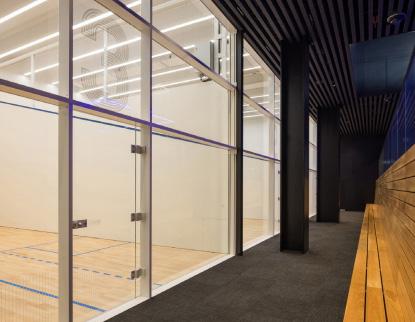

Overall:
Very happy with the facility, the result is a set of world-class squash courts ready for tournament play, seamlessly integrated into the Hiwa Recreation and Wellness Centre. These courts provide a premium sports experience with advanced features like movable walls for doubles matches.
If you want to get in touch to find out more email Elliot at: Elliot.Brown@colliers.com
If you are looking for info on developing your facility, jump on our Facility Support page, we have Contractor Contacts, Special Offers and more to help clubs out.
WITH SQUASH REFEREEING?
Ah, squash referees—the unsung heroes of the court, the guardians of the game, and, let’s be honest, the easiest target for players’ frustrations. Let’s face it: no one is hanging banners for the ref, and the crowd isn’t chanting your name. But here’s the kicker—every single person in the building has an opinion on your calls. So, if you’ve got an opinion, why not get involved and see what it’s like in the hot seat?
Refereeing squash isn’t just about deciding if the ball was out or if that was really a let (spoiler: the players will argue it was). It’s about getting to know the game on a whole new level, keeping the play fair, and ensuring matches don’t descend into chaos.
If you’ve ever gone upstairs to mark a game and told, “It’s your turn to ref,” you’ve probably prayed for a straightforward match. But squash has a funny way of delivering the opposite—a nail-biter that goes the distance, complete with tricky lets, questionable strokes, and a crowd that suddenly fancies itself as a panel of officiating experts. And here’s the thing: while players are quick to blame the ref for their loss, they conveniently forget the 17 tins they hit or the loose shots that handed their opponent easy winners. Funny how that works, isn’t it?

So, you’ve decided to take the plunge—good on you! Here are some survival tips:
1. Stay Calm: The players are under pressure, but so are you. Keep your cool and focus on the job.
Good news: becoming a squash referee doesn’t require a degree in rocket science or Jedi mind tricks (though the latter might help). Squash New Zealand has everything you need to get started, from beginner guides to advanced courses. Head to their resources page Resources and start your journey to becoming the most respected—and possibly least appreciated— person on the court.
Still not convinced. Let’s talk perks:
• Master the Game: Refereeing gives you a courtside seat to strategy, tactics, and all the little nuances you might miss as a player.
• Give Back to the Sport: You’re not just calling shots; you’re contributing to the squash community and keeping the game alive.
• Boost Your Life Skills: Refereeing builds confidence, sharpens decision-making, and teaches you how to stay calm when everyone else is losing their heads.
2. Learn the Rules: No shortcuts here. Know the rules inside out, and maybe keep a cheat sheet handy for those “what just happened?” moments.
3. Be Loud and Clear: Mumbling your calls will only invite chaos. Say it like you mean it!
4. Fairness is Key: No favourites. Even if one player brings you snacks before the match, fairness wins every time.
Refereeing squash might not make you a crowd favourite, but it’s one of the most rewarding ways to engage with the sport. You’ll learn, grow, and maybe even develop a thicker skin (trust me, it comes with the territory).
So, if you’ve got an opinion on the calls, why not put it to good use? The squash world needs more brave souls willing to take on the challenge. Check out Squash New Zealand’s resources and start your journey today. Who knows? You might just find yourself enjoying the best seat in the house—whether anyone cheers for you or not.
My opponent is nowhere near the ball and has no chance of getting it, but I catch it before it bounces twice. Do I win the point?
Nope! Even if your opponent has no chance of reaching the ball, you must let it bounce twice for the rally to officially end. If you catch or stop the ball before then, it’s a hand-out, and the point goes to your opponent. Next time, let it bounce twice before celebrating!
Rule 9.2.1
Do you have a refereeing question or a situation you are not sure about?
Chances are others may have the same query. Send your query to our NZ Referees c/mikejack@xtra.co.nz and we will share the answers with the squash community each month.
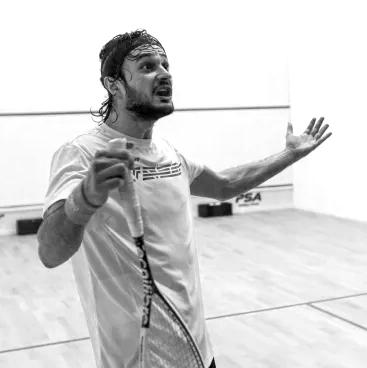
Please note – every situation is different and without seeing the exact context (player skill, direction of movement etc) we are giving our responses based on the rules and some guidance on how to apply them.
Q1: Which country did squash originate from?
Q2: How many months did Susan Devoy spend as world No 1?
Q3. When was the grading list first introduced?
Q4. True or False; iSquash has officially been turned off?
Q5: What position did Oli Dunbar finish in this year’s British Junior Open?
Q6: Who was the last male player to finish inside the top 10 at the British Junior Open?
Q7: Who did Paul Beat in the Quarter finals of the 2025 Tournament of Champions??
Q8: What is the first National tournament of 2025?
Answers on p. 29
No hitting partner? No problem! Solo practice is a brilliant way to sharpen your squash skills and up your game. Here are some fun and effective tips to make the most of your solo sessions:
1. Start with a Warm-Up
Let’s be honest, for some club players, a “warm-up” means seeing how quickly you can get changed—but it’s worth doing properly! A good warm-up gets you physically ready and sets the tone for great habits. Start the on courts session with a few drives up and down the wall to warm the ball and mimic match conditions.
2. Focus on Specific Shots
Break your session into chunks and work on different shots—drives, volleys, drops, lobs—you name it. Give each one some love and watch your technique and consistency improve.
3. Incorporate Movement
Squash isn’t just about hitting; it’s about moving! Stay on your toes and work on your footwork with exercises like figure eights or ghosting drills. You’ll be gliding around the court like a pro in no time.
4. Maintain Intensity
Treat your solo practice like a real match—go all in! Hit your best shots and keep your focus sharp. You’ll get more out of it and feel like a champ when you’re done.
5. Mix It Up
Keep things fresh by combining different shots and movements. Start in the back corner with drives, move forward for volleys and drops, and finish with a straight drive or cross-court lob. Jog to retrieve the ball and keep the session fast-paced—you’ll feel like you’ve had a proper workout!
6. Work on Quick Feet
Squash is all about speed, so get those feet moving. Incorporate skipping or jump rope into your warm-up or practice. It’s a great way to build quick reactions and stay light on your feet.
7. Experiment with Variations
Get creative with your shots! Play with different paces, heights, spins, and target areas. Try looping shots to the back, fast drives, or adding some cut or spin for flair. The more you mix it up, the more adaptable you’ll be in matches.
8. Practise Deception
Fancy outsmarting your future opponents? Use solo practice to perfect your poker face! Vary your swing and racket face to disguise your shots. It’s like learning magic tricks—but for squash.
Quality Over Quantity
Remember, it’s better to practise well for 15 minutes than to go through the motions for an hour. Focus on your form, challenge yourself, and keep it fun. With regular solo practice, you’ll be amazed at how much your game improves.


Are you new to squash and feeling like a deer in headlights when it comes to choosing the right ball? Fear not! This guide will help you navigate the bouncy world of squash balls with ease and a smile.
Squash balls are like the Goldilocks of the sports world – you need to find the one that’s just right. They vary in speed and bounce, which can be confusing. But remember, more bounce means longer rallies and more fun, especially for beginners.
Squash balls also react to temperature. The more they’re hit, the warmer they get, increasing their bounce. That’s why professionals spend time warming up their ball before matches—it’s not just a ritual! If a ball is too cold, it won’t bounce much at all, making rallies short and frustrating, especially for newer players.
Manufacturers use coloured dots to indicate the bounce and suitability of squash balls. Here’s a breakdown:
• Double Yellow Dot (Pro) – The slowest and least bouncy ball, used by professionals and advanced players. Requires a good timing to stay lively and is best suited for warm courts.
• Single Yellow Dot (Competition) – Slightly more bounce, making it ideal for club players or colder courts where the double yellow dot feels too dead.
• Blue Dot (Progress) – A much bouncier ball than the yellow-dot versions, helping improvers build confidence with longer rallies.
New to squash? Start with a blue Dot to keep the game fun and flowing. A ball that’s too slow will kill rallies before they begin.
Intermediate players? The single yellow dot gives a great balance between control and bounce, helping you develop your game.
Advanced players? The double yellow dot is the standard, but be prepared to hit it hard to keep it warm and bouncy.
Choosing a ball suited to your ability means longer rallies, better consistency, and a more enjoyable experience on court.
Dunlop is the most recognised squash ball brand, supplying the official ball for PSA tournaments, but other brands offer great alternatives.
Tecnifibre and Prince have excellent blue dot balls, ideal for beginners and improving players.
Karakal and Stellar provide fantastic options for young juniors and novices.
If you play on colder courts, you may need a ball with more bounce (like a single yellow or blue dot) to prevent rallies from feeling sluggish. Many ex-A & B grade players I know ( now they are getting on a bit) now use a blue dot in winter, finding it easier on the body while still allowing for good rallies.
If your rallies rarely last more than three shots, your ball might be too advanced for your level. Try levelling up (or down) to find the best match!
Picking the right squash ball isn’t about what the professionals use—it’s about what keeps your game enjoyable. The right ball can help you develop skills, increase confidence, and, most importantly, make squash more fun.
So grab the right ball, hit the court, and enjoy the game. Happy hitting!
Breaking Barriers in Women’s Squash
Grace Hymers, a dedicated squash player originally from Wairarapa, has called Christchurch home for the past seven years. As a representative player, she recognised a gap in women’s squash training— players often trained in isolation and only connected before nationals. Determined to change this, she spearheaded a Women’s Performance Squash Development Programme for Canterbury. Launched in 2024, the programme aims to continue into 2025 and beyond. Even sidelined by injury this in 2024, her passion drove her to leverage her connections with High Performance Sport New Zealand (HPSNZ) to deliver expert-led workshops and training sessions.
“I knew firsthand how isolating it could be for female players, so I wanted to create something that brought us together regularly, not just before major tournaments,” Grace shares. “Even though I couldn’t compete this year, I saw an opportunity to give back to the sport by using my connections to help others develop.”
Building a Stronger Squad
Grace’s vision was clear: create a cohesive training group for Canterbury’s top female squash players to train together regularly. With support from coach Mike Allred, she developed an on-court programme and brought in specialists to enhance players’ physical and mental game.
The programme isn’t just about hitting the ball—it’s about holistic player development. So far, three expertled sessions have taken place, covering:
• Strength & Conditioning: Workshops led by highperformance coaches and physiotherapists.
• Nutrition & Women’s Health: Insights from Serena Haggard, a sports nutritionist, on performanceenhancing diets and hormone health.
• Injury Prevention & Mental Skills: Helping players stay strong, both physically and mentally.
Grace is committed to breaking barriers for women in squash. She organises sessions at various clubs

including the Richmond Club & Christchurch Football Squash Club and plans to record sessions for players outside Christchurch. She’s also encouraging collaboration with other regions for inter-district training opportunities.
“I want to make sure that women outside Christchurch also have access to these resources. We’re looking at ways to share recorded sessions and even coordinate training with other districts,” Grace explains.
A key part of Grace’s journey in launching this initiative has been the support of mentor Mike Allred.
“Mike has been incredibly helpful, mainly providing mentoring and support when I had doubts about setting this up. I always knew I could call him whenever I had a worry or needed some direction. As he’s done things like this before—sometimes successfully and sometimes not—he was able to sympathise and provide guidance on how to move forward,” Grace shares.
“I really benefited from his support as there were a few times I thought I couldn’t run this women’s initiative, but he quickly found a way to reassure me and get me motivated again.”
• Coaching & Mentorship: Grace provides on-court coaching and guidance, with Squash New Zealand offering background support and resources.
• Expanding the Programme: Future plans include a regional roadshow, structured coaching sessions, and a junior coaching initiative.
• Grace’s Comeback: Once recovered, she aims to return to competitive squash and continue building the programme.
Emma is the first squash coach accepted into the HPSNZ “Te Hāpaitanga” program, designed to empower female coaches. She joins coaches from Netball, Basketball, Water Polo, and Skateboarding.
Te Hāpaitanga supports female coaches in high performance sport in Aotearoa New Zealand with:
• A cash scholarship
• One-on-one mentoring
• Immersive residential workshops
• A community of like-minded coaches
“I love the extra opportunity to hit with other women in a non-competitive setting. The expert sessions have been eye-opening and incredibly valuable.”
“The programme has given me access to talented players, injury prevention advice, and better nutrition practices—things I hadn’t considered before.”
“Being new to Christchurch, this group has helped me meet other female players. The expert speakers have added that extra edge to my training.”
Grace’s initiative is designed to transform women’s squash in Canterbury, fostering community, skill development, and mentorship. Despite a few ups and downs, Grace intends to continue the programme with a desire to expand it, leaving a lasting mark on the sport—one powerful rally at a time.
Answers to squash trivia (from p 25)
A1: England (at Harrow School)
A2: 105 months
A3: 1966 (previously a handicap system was used)
A4: True
A5: 6th
A6: Campbell Grayson, 9th 2004
A7: Gregoire Marche (3/0)
A8: NZ Junior Open (Christchurch 7th – 9th March)
This program is for women coaching on the highperformance pathway or those transitioning from elite athletic careers.





Squash New Zealand Poipātū Aotearoa is excited to officially launch the New Tournament Controller Pathway. Club courses live in Squash Smart Now!
What is the tournament controller pathway?
Learn how to manage all aspects of a tournament from club level through to district, national and international. This pathway is designed to provide support and opportunities for volunteers to learn and upskill their tournament control knowledge, whether they are running their first of 21st tournament.
What is a tournament controller?
A tournament controller is a volunteer who has been designated to organise, manage and run the whole or part of a tournament.
Who can be a tournament controller?
Anyone who has or wants to run an event at a club level, or who desire to run events at a district or national level.
Why become a qualified tournament controller?
• Step-by-step guide on how to run a tournament.
• Valuable tips and tricks to enhance your event/experience.
• Access to time saving templates and resources.
• Join the tournament controller community.
• Opportunities to lead district and national events.
How to get started?
Sign up to Squash Smart HERE, register for the Club level course and get learning.
Learn how to manage all aspects of a tournament from club level through to district, national and international tournaments. This pathway is designed to provide support and opportunities for volunteers to learn and upskill their tournament control knowledge whether they are running their first or 21st tournament.
is a Tournament Controller?
part of a tournament.
Accreditation achieved by - Complete the club course on SquashSmart
On successful competition, they can TC: Club events
Who
be a Tournament Controller?


Ethan Waters has been named Volunteer of the Month in recognition of his exceptional dedication to squash in the Eastern district. Ethan’s passion for the sport led him to create a Superleague Competition, specifically designed for Eastern’s higher-graded players. Not only did he conceive the idea, but he also took charge of running the entire competition, ensuring its success, and providing a platform for local players to compete at a higher level. His leadership and commitment have brought a fresh level of excitement and opportunity to the districts squash scene.
In addition to his efforts with the Superleague, Ethan has volunteered his time to join the Squash Eastern Board. His decision to take on this additional role demonstrates his continued commitment to giving back to the game and helping shape its future in the district. Ethan’s initiative, leadership, and ongoing involvement make him an outstanding choice for Volunteer of the Month, and a true asset to the squash community.
Ethan will be receiving a new hoodie or mid layer of chose when our new merchandising goes live in a few weeks’ time plus a box of balls.


Early squash rackets were shaped ‘rackets’ rackets (Yes there was a sport named rackets. Before squash there was a game called ‘rackets’ and before rackets there was a game called ‘real tennis’). A single piece of wood (usually ash) was steam bent and joined at the throat with a wooden wedge in-between. These solid wooden rackets remained the standard for squash until the late 1920s. Then laminated squash rackets rapidly came into vogue. This was possible after the invention of a new resin glues for the aircraft industry. Several layers of thin strips of wood were glued together, creating a much stronger racket.
Squash rackets still had to be made of wood, but in 1956 ither materials were first allowed, although for the shaft only. It was not until the early 1980s that racket frames entirely made of new, lighter, materials as aluminium or graphite (carbon fibre) were permitted. The shape of the squash racket head was at that time still more or less the same as it had been a century earlier. That changed in 1988 with the arrival of the prince Extender, with its teardrop shape. The next step was the Head 440 racket in 1991, when these much larger strung surfaces (up to 500cm2) first became allowed. The lighter materials combined with larger racket heads have had a great impact on the way squash has been played since then.
Source: Squash Then and Now: A Celebration, written by Andrew Shelley and Bas van Hoorn

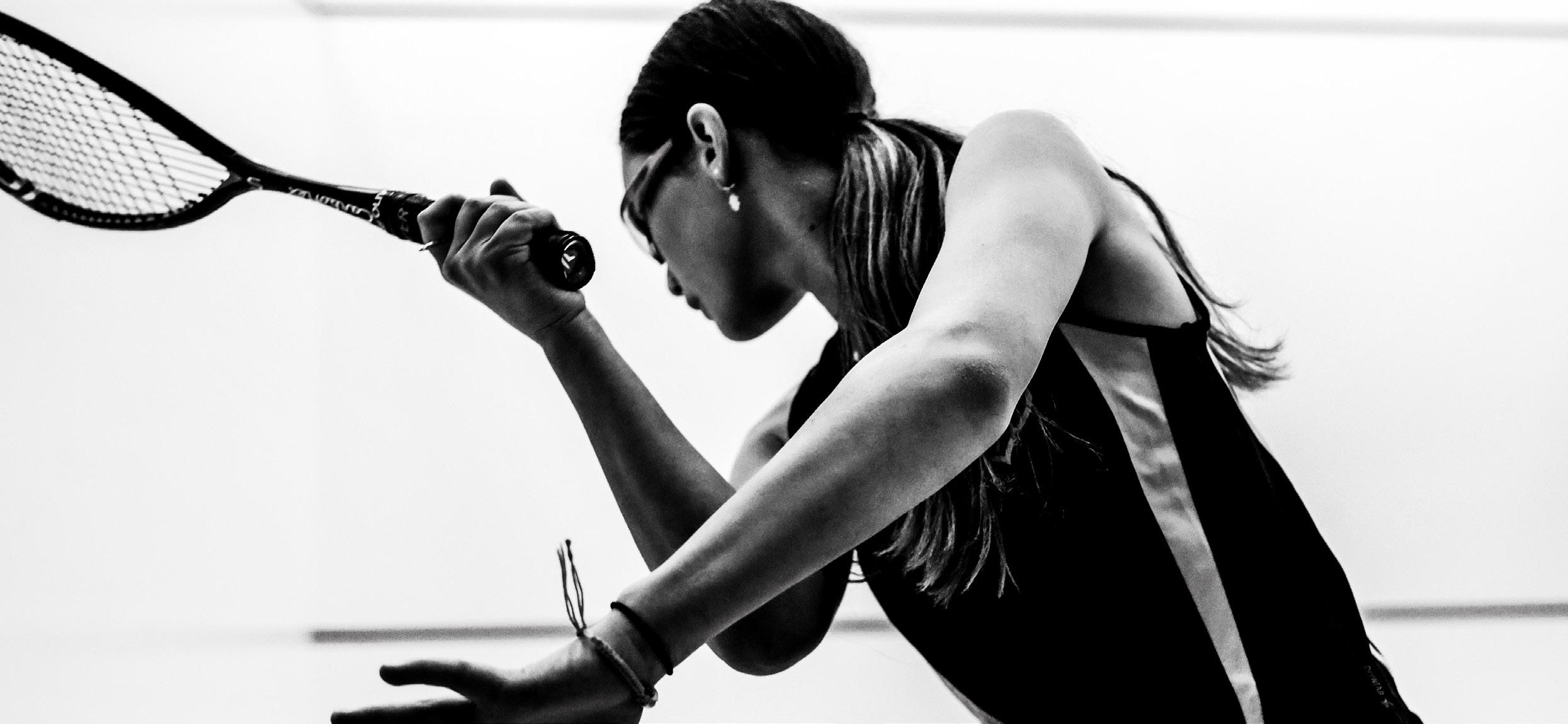
SNZ and your club have been busy preparing for our big MySquash upgrade release which includes the brand new MySquash Competitions, which launched Wednesday 5th February.
As we go through the process of bringing all current club members into MySquash, if you have an existing MySquash profile you currently use, you may receive a welcome email inviting you to activate a new MySquash account. This will be a duplicate caused by your club profile being unable to match your MySquash profile. We will be working on sorting through and removing the duplicates, but please forward this welcome email to support@squashnz.co.nz so we can ensure the profile is removed.
Now onto the fun stuff! We’ve got loads of new features coming for all players, whether playing graded tournaments and interclub is your thing, or if you just have a weekly hit with a few mates. These new features will be launched in a couple of waves during February and March.
• Modern Design: Enjoy an upgraded, mobile-friendly interface.
• Club Competitions: Easily join internal club events like ladders, box leagues, or mini-tournaments.
• Create Your Own Games: Set up ladders, box leagues, or competitions with friends.
• Live Scoring: Score tournament or interclub matches directly on your phone.
• SquashLevel for All Players: Even non-graded players can now see their SquashLevel to find better matchups.
• Seamless Integration: Link your MySquash profile with your club’s Hello Club profile (where available) and switch between them effortlessly.
Simply log in to your MySquash account and click the ‘Competitions’ button in the menu. No more logging into a separate iSquash system!
If you’re already graded:
• Make sure you can log into your MySquash account. If not, email support@squashnz.co.nz to be sent a new welcome email.
• Ensure your MySquash profile is linked to your grading info.
• To check, log in to MySquash, go to the ‘Profile’ page, and confirm your player code, grade, and level appear under your name.
• If you don’t see this information, email support@squashnz.co.nz to get your profile fixed
If your club uses Hello Club and you have an existing MySquash profile:
• Ensure your first name, last name and email address in MySquash are exactly the same as your club Hello Club profile. If not, update these in your MySquash profile to match.
• If your profiles have different email addresses, email support@squashnz.co.nz for help.
If you’re a club member, once your club completes its setup, you’ll receive a welcome email to activate your MySquash account.
Follow the ‘Activate account’ button in the email, complete a few simple steps and you’re ready to go.
For Club Members: Access is included in your club membership fee.
For Non-Club Members: You can purchase a Lifestyle or Junior Player subscription directly from MySquash once the upgrade is live. The Competitive Adult subscription is only available to club members.
Entering Tournaments or Viewing Interclub Draws in 2025
Graded players must use their MySquash account to register for tournaments or view interclub draws.
For early-season tournaments in 2025, some clubs may still use iSquash. These entries will be transferred to MySquash Competitions when it goes live in early February.
Ensure your club membership is up to date to activate your MySquash account.
Connecting Your New MySquash Profile with Your Club’s Hello Club Profile
If your club uses Hello Club:
Use the same email address you used in your club profile to set up your MySquash profile once you receive the welcome email.
Once linked, switch between profiles using the ‘Profile Switcher’ in the top right corner.



Based on a player feedback and club input at the end of 2024, we are introducing a new option for players to exclude a competition match from SquashLevels calculations based on three conditions,
1. The higher-level player must be at least two times higher than the lower-level player on the day of the match. Examples are,
- A player on 100 playing someone on 200 or higher.
- A player on 500 playing someone on 1000 or higher.
- A player on 2500 playing someone on 5000 or higher.
2. Both players must mutually agree for it to be a ‘Fairplay’ match prior to stepping onto the court to begin the match.
3. If mutually agreed by the players, the interclub team captains or tournament controller (via the marker) must be advised immediately at the conclusion of the match for the result to be submitted correctly in MySquash as ‘Fairplay’.
The person entering the score in MySquash will select ‘Fairplay’ from the match status dropdown box, where they would normally select Player or Defaulted.
The games won will still count for interclub team points, and the match will be recorded in the playing history for each player, however there will be no Level changes for either player based on the outcome of the match.


MOST IMPROVED MALE congratulations congratulations 16.4%
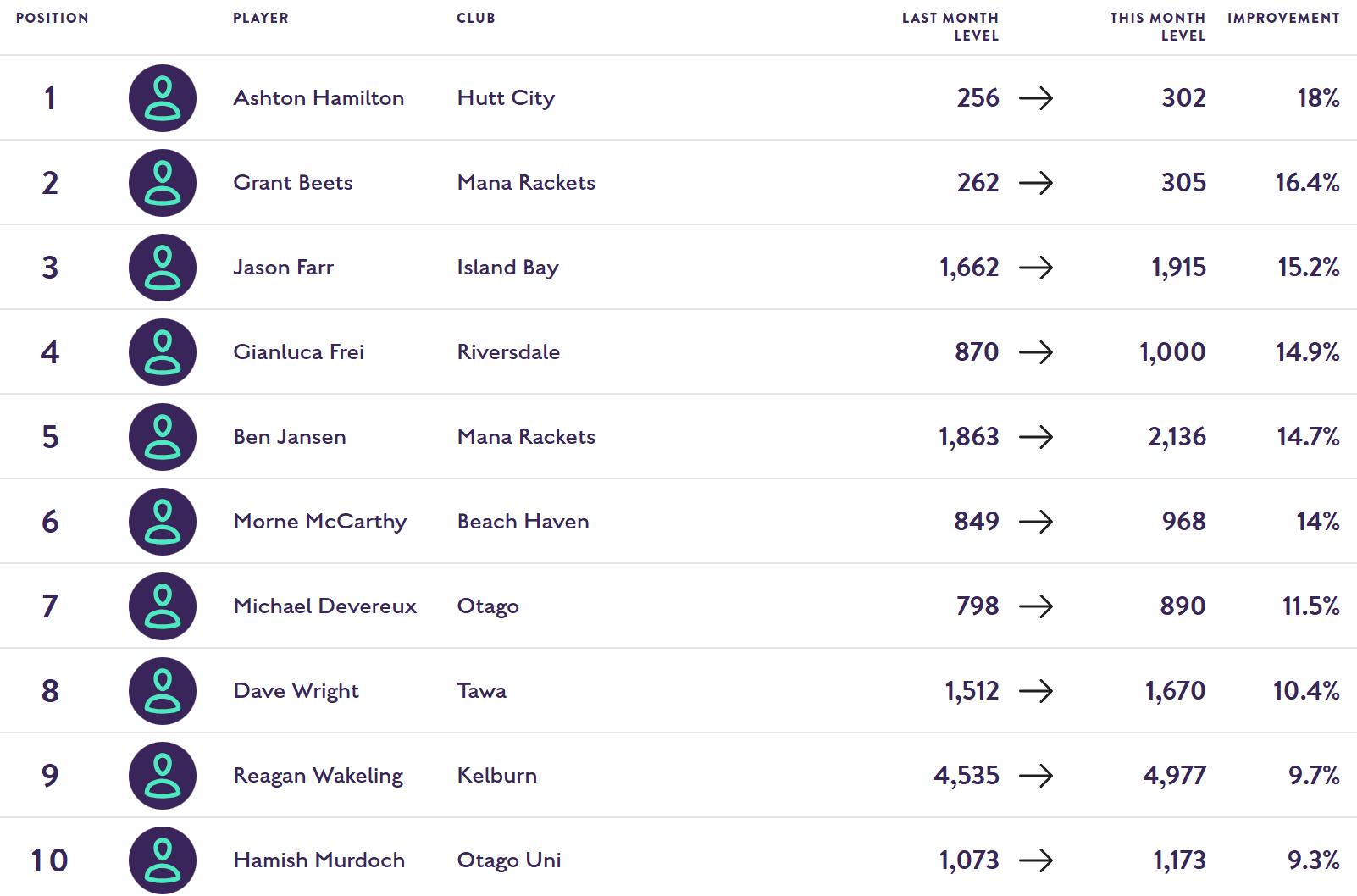
ASHTON HAMILTON / Hutt City
18%
HAMILTON SQUASH & TENNIS CLUB

Sign up via iSquash (NZ) or email Tyler@squashnz.co.nz (International)
Entries close 28 March
Participating countries
Australia, Cook Islands, Fiji, New Caledonia, New Zealand, Norfolk Island, Papua New Guinea, Samoa, Tahiti, Vanuatu
more info: Click here
Individuals’ 19–21 April 2025

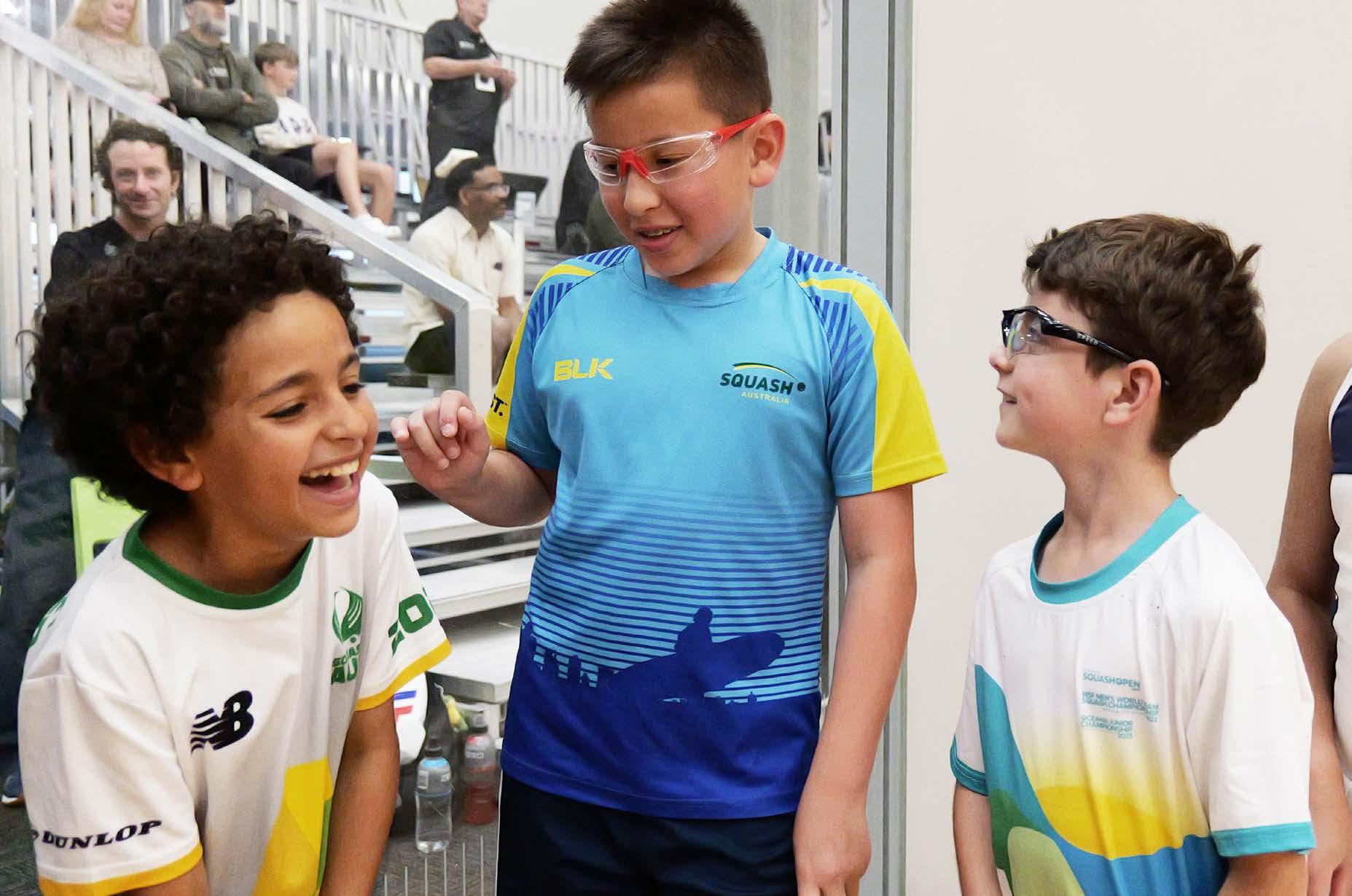


Trans-Tasman (Australia vs New Zealand) 22–23 April 2025
Event
New Zealand Junior Open
Canterbury Junior Open
Oceania Junior Championships
Central Junior Open
Auckland Junior Open
Waikato Junior Open
North Island Junior Championships
South Island Junior Age Groups
Wellington Junior Open
Northland Junior Open
BOP Junior Open
NZ Secondary Schools Squash Nationals
Eastern Junior Age Groups
Otago Junior Open
Southland Junior Open
Midlands Junior Open
G.J. Gardner Homes NZ Junior Age Group Championships
NZ Inter-Disrtict Junior Team Championships
Date
7th - 9th March
4th - 6th April
19th - 21st April
23rd - 25th May
6th - 8th June
12th - 14th June
28th - 30th June
11th - 12th July
17th - 19th July
25th - 27th July
25th - 27th July
1st - 3rd August
22nd - 24th August
22nd - 24th August
29th - 31st August
5th - 6th September



Venue
Christchurch Squash Club
Rangiora Squash Club
Hamilton Tennis & Squash Club
Ohakune Squash Club
Remuera Rackets Club
Morrinsville Squash Club
Whangarei Squash Club
Ashburton Squash Club
Tawa Squash Club
Keri Keri Squash Club
Whakatane Squash Club
Hutt City Squash Club
Hawkes Bay Squash Rackets Club
Cromwell Squash Club
SquashCity Invercargill
Timaru Squash Club
26th - 28th September
29th - 30th September
Henderson Squash Club
Henderson Squash Club



New Zealand Masters Games
Auckland Masters
Central Masters
Canterbury Masters
Waikato Masters
Midlands Masters
Wellington Masters
Otago Masters
Masters Club Team Championships
Northland Masters
BOP Masters
Southland Masters
G.J. Gardner Homes NZ Masters Championships
NZ Inter-Disrict Masters Team Championships
6h - 9th February
20th - 22nd March
11th - 12th April
16th - 18th May
22nd - 24th May
11th - 12th July
17th - 19th July
8th - 9th August
8th - 10th August
22nd - 24th August
29th - 31st August
29th - 31st August
17th - 19th October
20th - 21st October

Whanganui Squash Club
Kumeu Squash Club
Okato Squash Club
Christchurch Football Club
Huntly Squash Club
Ashburton Celtic Squash Club
Pirates Squash Club
Hutt City Squash Club
Kamo Squash Club
Te Puke Squash Club
SquashCity Invercargill
Nelson Squash Club
Nelson Squash Club


Event
Waikato Open
Eastern Open
BOP Open
Auckland Open (PSA)
Southland Open
Otago Open
Northland Open
Wellington Open
Central Open
South Island & Canterbury Open
Midlands Open (PSA)
Date
14th - 16th March
2nd - 4th May
9th - 11th May
22nd - 25th May
23rd - 25th May
6th - 7th June
6th - 8th June
6th - 8th June
13th - 15th June
19th - 22nd June
28th - 31st June
Hamilton Squash & Tennis Club
Hastings Squash Club
Taupo Squash Club
North Shore Squash Club
SquashCity Invercargill & ILT Stadium Southland
Otago Squash Club
Whangarei Squash Club
Tawa Squash Club
SquashGym Palmerston North
Christchurch Football Club & Richmond Squash Club
Temuka Squash Club
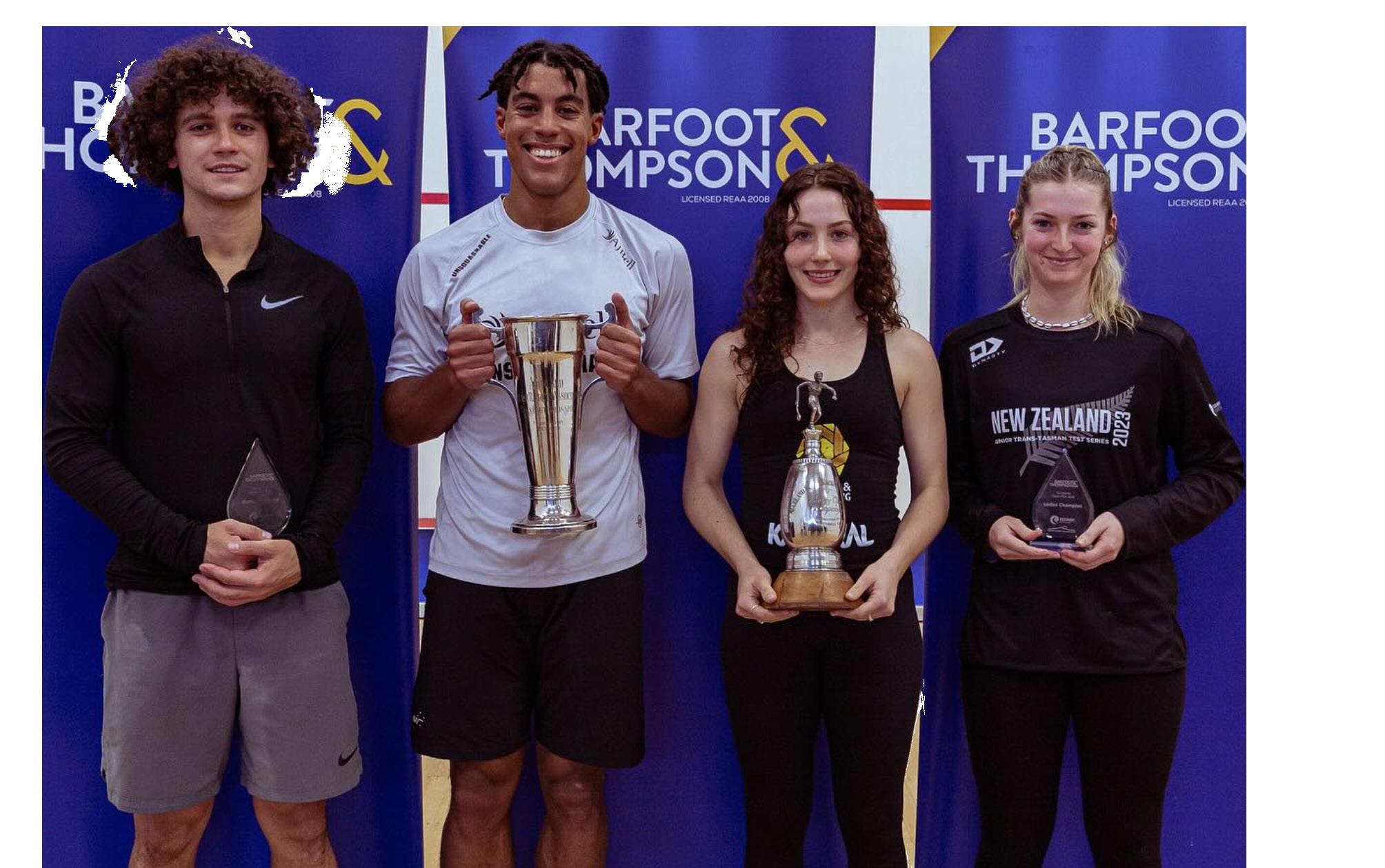

4th - 9th
7th - 9th
28th - 29th
19th - 21st
30th - 1st
28th - 30th
4th - 6th
11th - 12th
1st - 3rd
8th - 10th
15th - 16th
10th - 14th
10th - 14th
10th - 14th
10th - 14th
10th - 14th
26th - 28th
29th - 30th
17th - 19th
20th - 21st
New Zealand Open
New Zealand Junior Open
New Zealand Doubles Championships
Oceania Junior Championships
Mitchell Cup & Cousins Shield
North Island Junior Championships
New Zealand Championships + National Graded Champs
South Island Junior Age Groups
NZ Secondary Schools Squash Nationals
Masters Club Team Championships
NZ Inter-District Team Championships
G.J. Gardner Homes National Superchamps
B Grade Superchamps
C Grade Superchamps
D Grade Superchamps
E Grade Superchamps
F/J Grade Superchamps
G.J. Gardner Homes NZ Junior Age Group Championships
NZ Inter-District Junior Team Championships
G.J. Gardner Homes NZ Masters Championships
Isaac
Christchurch Squash Club
Hutt City Squash Club
Hamilton Tennis & Squash Club
Cambridge Rackets Club
Whangarei Squash Club
North Shore Squash Club
Ashburton Squash Club
Hutt City Squash Club
Hutt City Squash Club
Squash Gym Palmerston North
Timaru Squash Club
Otago Squash Club
SquashCity Invercargill
Hawkes Bay Squash Rackets Club
Geyser City Squash Club
Henderson Squash Club
Henderson Squash Club
Nelson Squash Club
NZ Inter-District Masters Team Championships
Nelson Squash Club Event

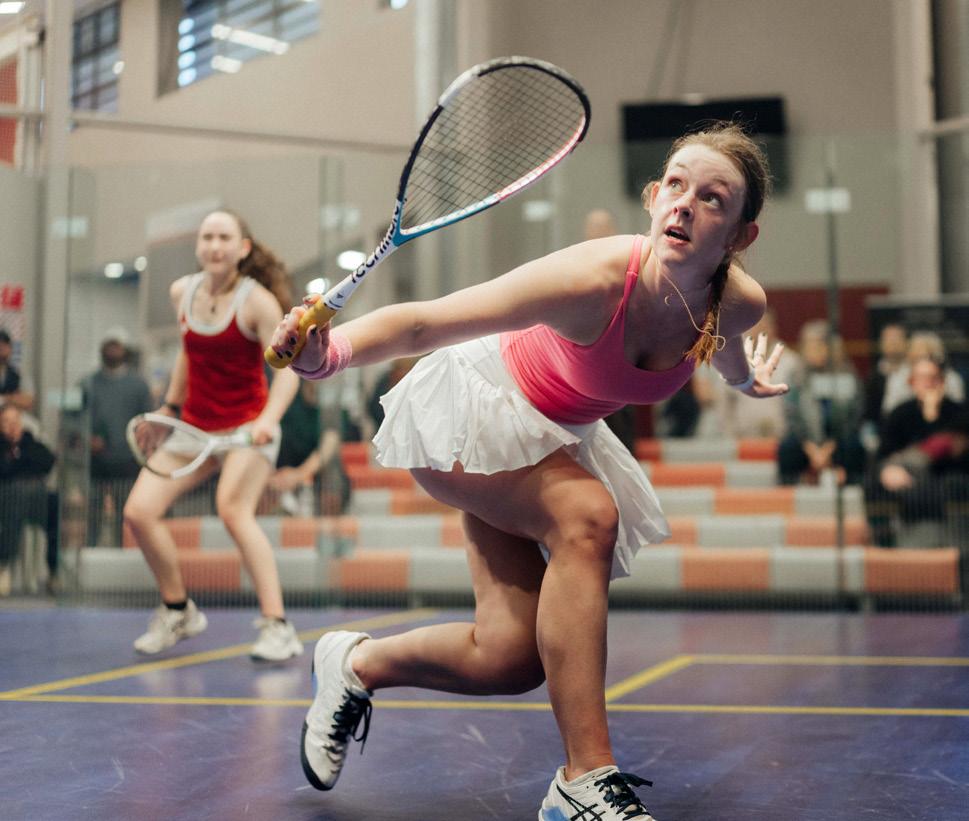

Want to be featured in The Boast?
Email admin@squashnz.co.nz with stories from your club or district to be featured in the next edition of The Boast.
MAJOR PARTNERS

STRATEGIC FUNDERS

MAJOR FUNDERS

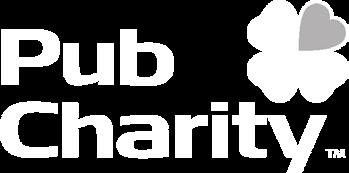

SUPPORTING PARTNERS

Subscribe to The Boast here